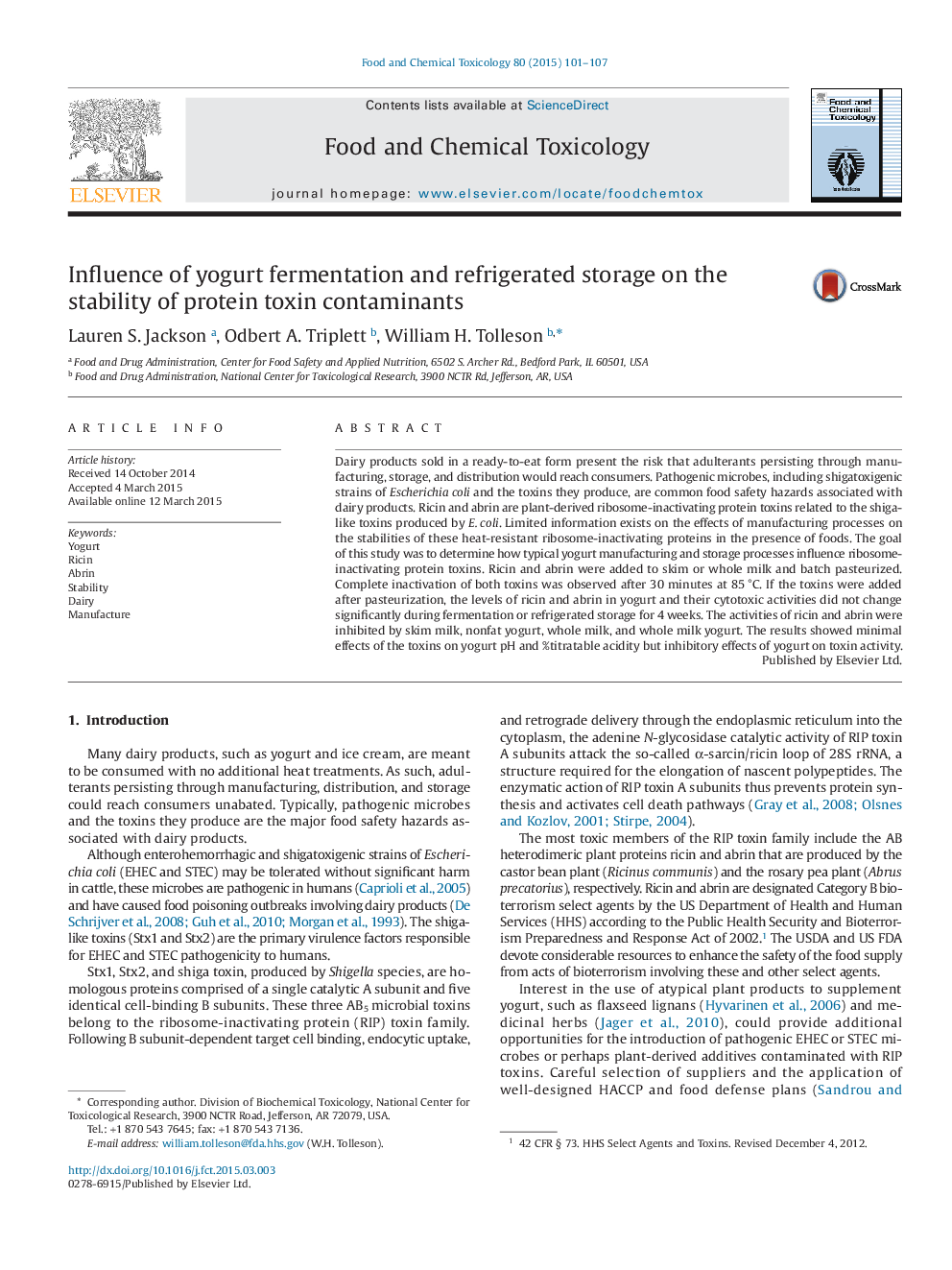| Article ID | Journal | Published Year | Pages | File Type |
|---|---|---|---|---|
| 5849800 | Food and Chemical Toxicology | 2015 | 7 Pages |
â¢Ricin and abrin added to whole or skim were inactivated completely by pasteurization for 30 minutes at 85â°C.â¢The levels of ricin and abrin were not diminished by yogurt fermentation at 43â°C or by 4 weeks of refrigerated storage.â¢Effects of ricin and abrin on pH and %titratable acidity during yogurt fermentation were negligible.â¢The biological activities of ricin and abrin were reduced in the presence of milk or yogurt.
Dairy products sold in a ready-to-eat form present the risk that adulterants persisting through manufacturing, storage, and distribution would reach consumers. Pathogenic microbes, including shigatoxigenic strains of Escherichia coli and the toxins they produce, are common food safety hazards associated with dairy products. Ricin and abrin are plant-derived ribosome-inactivating protein toxins related to the shiga-like toxins produced by E.âcoli. Limited information exists on the effects of manufacturing processes on the stabilities of these heat-resistant ribosome-inactivating proteins in the presence of foods. The goal of this study was to determine how typical yogurt manufacturing and storage processes influence ribosome-inactivating protein toxins. Ricin and abrin were added to skim or whole milk and batch pasteurized. Complete inactivation of both toxins was observed after 30 minutes at 85â°C. If the toxins were added after pasteurization, the levels of ricin and abrin in yogurt and their cytotoxic activities did not change significantly during fermentation or refrigerated storage for 4 weeks. The activities of ricin and abrin were inhibited by skim milk, nonfat yogurt, whole milk, and whole milk yogurt. The results showed minimal effects of the toxins on yogurt pH and %titratable acidity but inhibitory effects of yogurt on toxin activity.
Graphical AbstractDownload full-size image
